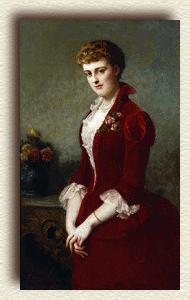Books |
Edith Wharton: The House of Mirth
By
Published: Mar 14, 2023
Category:
Fiction
Lawrence Selden was infatuated with Lily Bart. He couldn’t help it. She was from a good family. She knew everyone. She was painfully beautiful. And special, yes, special: “He had a confused sense that she must have cost a great deal to make, that a great many dull and ugly people must, in some mysterious way, have been sacrificed to produce her.”
What’s wrong with Lily Bart? Just three things. Her family has lost its money. She’s unmarried. And she’s 29.
Twenty nine and unmarried — hardly reason for a single woman to panic. But in 1903 to 1905, when Edith Wharton was writing “The House of Mirth,” society — that is, upper-class New York “Society” — was remarkably judgmental about a woman in such a position. Particularly if she had lost her inheritance, as Lily has. Because, in that circumstance, she was prey to rich, married men who wanted to “help” her in exchange for the kind of thanks that permanently destroy a woman’s reputation.
That is the conflict of Wharton’s first great novel: a woman fighting to make her way through a Society more infatuated with hypocrisy than humanity. This is high-toned stuff, not raw material for popular fiction. But Wharton saw a way. “A frivolous society can acquire dramatic significance,” she explained, “only through what its frivolity destroys.”
The reason “House of Mirth” used to be assigned in English class is because it is a brilliantly written dissection of a society we like to think has disappeared. How… wrong. The reason to read it is because only the particulars have changed. The essential questions of the drama are as interesting now as they were compelling then: What will happen to Lily Bart? Will Selden rescue her? Or will rich married men ruin her? And if she is ruined, what will happen to her then? [To buy the paperback from Amazon, click here. For the Kindle edition, click here.]
A terrible movie was made of this book. It was close to redundant — Wharton learned her craft from de Maupassant, and her book is such great visual storytelling that to read it is, in a sense, to see the movie. So don’t think you’ll pick it up to improve your mind. This is popular fiction at its best: pure, nail-biting pleasure.
RELEVANT?
How “relevant” is this novel? Pulitzer Prize winner Jennifer Egan says: very. Click here to read why.
NC-17-RATED BONUS
Edith Wharton writing a sex scene? It happened. If you’re easily offended, do not read “Beatrice Palmato.”If you’re curious or like well-written smut… click here.


